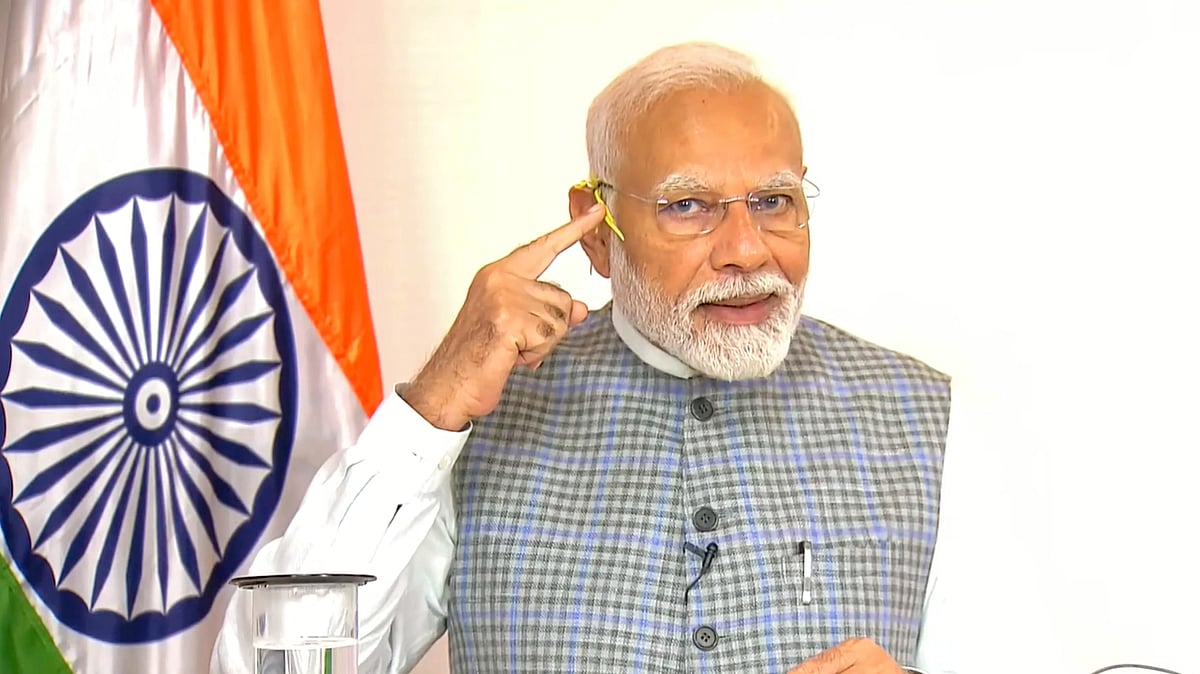POLITICS
Families would have saved lakhs more if GST was revamped 8 years ago: Stalin
Tamil Nadu CM adds that half of the relief being trumpeted by the Centre had been funded by state governments

Tamil Nadu chief minister M.K. Stalin has hit out at Prime Minister Narendra Modi’s lavish claims about the latest Goods and Services Tax reforms. Responding to Modi’s boast that Indians would save Rs 2.5 lakh crore thanks to tax reliefs, Stalin noted tartly that had such measures been implemented eight years ago when the Opposition first demanded them, families across the country would already have saved “many lakh crores more”.
In a post on X, Stalin added that half of the relief being trumpeted by the Centre had, in fact, been funded by state governments, a contribution Delhi had conspicuously failed to acknowledge. “India cannot grow by punishing states that defend their rights and stand for their people. Respect federalism, release the funds, and let the people benefit from what is rightfully theirs,” Stalin said, warning that the Centre’s triumphalism masked a less generous fiscal reality.
The prime minister had set the stage with his own brand of political theatre. In an address to the nation on 22 September, timed to coincide with the start of Navratri, he declared: “We have strengthened the hands of the middle class with the massive income tax cuts, which ensure zero tax up to the annual income of Rs 12 lakh. If we combine the income tax cuts and the next general GST reforms, they add up to savings of nearly Rs 2.5 lakh crore for the people.”
Published: undefined
The government has christened the rollout 'GST Bachat Utsav' — a 'savings festival designed to project a windfall for households. It was vintage Modi: part policy announcement, part spectacle, the language aimed less at accountants than at voters.
Beneath the fanfare, GST 2.0 represents a rationalisation long demanded by economists and Opposition parties alike. The previous four-slab system of 5, 12, 18 and 28 per cent has been simplified into two tiers of 5 and 18 per cent. Everyday essentials have mostly been tucked into the lower bracket, while 'luxury' and 'sin' goods have been pushed higher.
The government argues the changes will lower compliance burdens, reduce leakages and put money back into the pockets of ordinary families. Yet critics cannot help but point out the obvious: these very reforms were blocked for years by the BJP government, dismissed as unworkable until the political winds shifted.
Stalin sharpened this point by accusing Delhi of taking applause for reforms partly bankrolled by the states. He argued that Tamil Nadu, already being denied funds under the Samagra Shiksha scheme for "refusing to accept Hindi imposition", was effectively being punished twice: squeezed fiscally, then excluded from the narrative of generosity. “When will this injustice end?” he asked.
Published: undefined
Other state leaders have been just as blunt. West Bengal’s Mamata Banerjee claimed her state stood to lose Rs 20,000 crore in revenues, while Telangana’s Revanth Reddy demanded Rs 7,000 crore in compensation. The supposed festival of savings, they argue, is built on the budgets of state governments.
The Congress has also dismissed Modi’s announcement as a self-promotional exercise. Party MP and general-secretary (communications) Jairam Ramesh noted that the reforms were decided within the GST Council, where states hold equal stake, yet the prime minister’s address made it sound like a one-man achievement.
Congress president Mallikarjun Kharge revived the old epithet of 'Gabbar Singh Tax' to describe the previous convoluted slab system, accusing the government of subjecting families to years of avoidable strain before grudgingly conceding what the Opposition had proposed from the start.
The timing of GST 2.0, coming ahead of crucial Assembly elections in Bihar and a few other states, has not been lost on anyone. By wrapping technical tax changes in the language of utsav and 'Viksit Bharat', Modi seeks to claim credit for delivering relief to the middle class. Yet, as Stalin underlined, this is less a bold reform than a long-delayed correction.
There also remains the practical question of whether businesses will pass on the tax cuts to consumers, and whether the Centre will adequately compensate states for their losses. Without those, the so-called 'savings festival' may turn out to be more of a marketing gimmick than a fiscal revolution.
With PTI inputs
Published: undefined
Follow us on: Facebook, Twitter, Google News, Instagram
Join our official telegram channel (@nationalherald) and stay updated with the latest headlines
Published: undefined